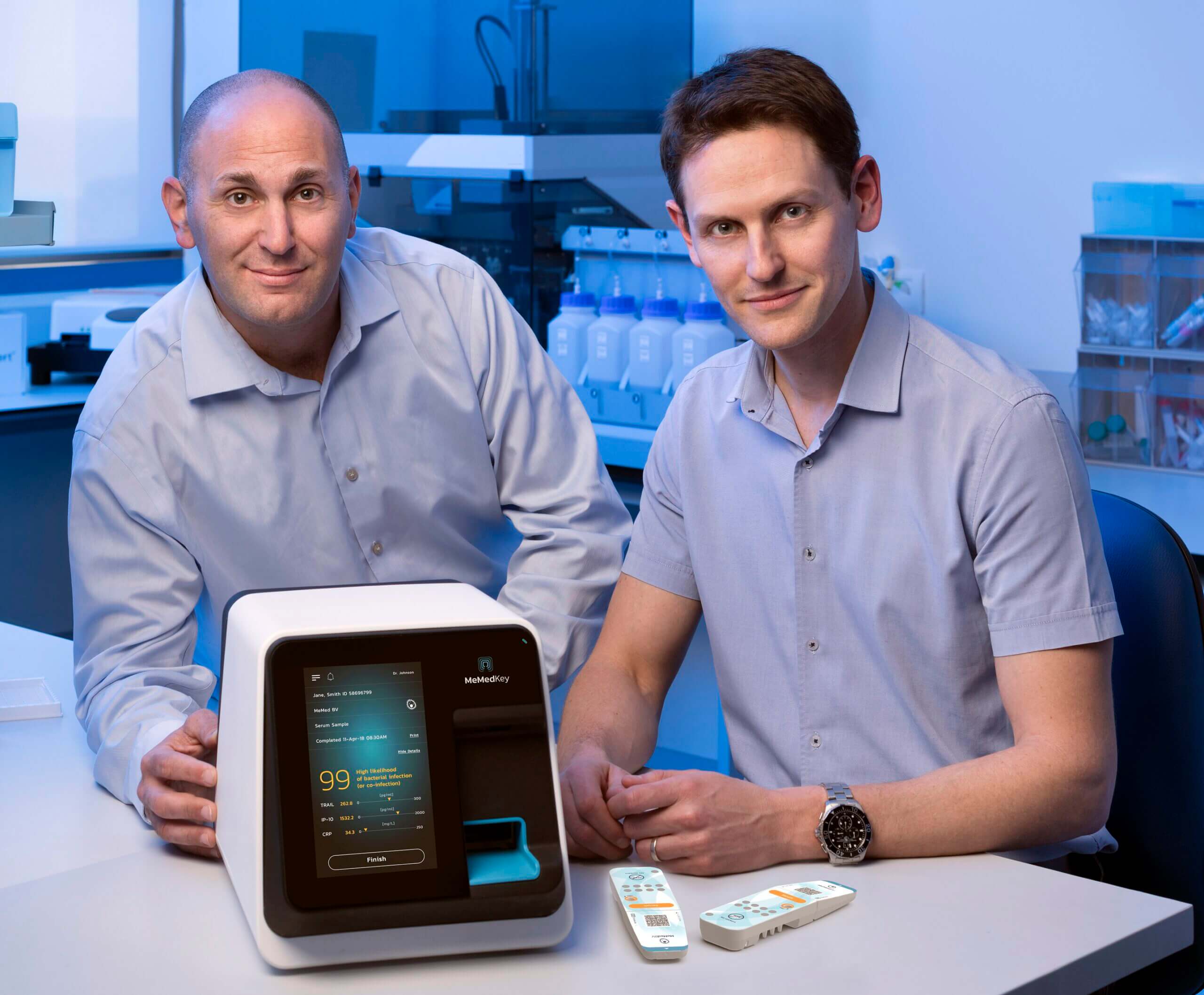MeMed BV is a test that is claimed to be the first of its kind that decodes the signals of the immune system and differentiates between a bacterial infection and a viral infection within a few minutes and at a high level of accuracy

The Israeli med-tech company MeMed announces yesterday (Monday) that it has received regulatory approval (K510) from the US Food and Drug Administration (FDA) for the marketing in the US of theMeMed BV, A test that helps clinicians distinguish between viral and bacterial infections, and of the– MeMed Key A breakthrough platform for measuring a large number of proteins at the same time, in a few minutes and with a high level of accuracy. The test has been approved for use in children and adults.
MeMed BV It is a groundbreaking test, a protein signature based on the immune system response, which was developed and validated over a decade of collaborations with leading academic and commercial partners. It provides physicians with an essential tool for distinguishing between bacterial and viral infections and answering this key clinical question with a sensitivity and specificity of over 90% (NPV>98%), regardless of the type of pathogen, the times of onset of symptoms, or the presence of harmless microorganisms.
MeMed BV measures and weights through a computational algorithm the levels of three proteins that participate in the immune system response: TRAIL, IP-10, and CRP. The test is performed on a serum sample using the MeMed Key® and provides a result within 15 minutes.
MeMed BV has been validated in an unprecedented volume of international clinical studies conducted in double-blind, and published after peer review in leading journals (includingPediatrics, The Lancet ID, PLOS One, BMJ Peds, and-European Journal of Clinical Microbiology & Infectious Diseases), and with the help of data collected from more than 15,000 patients as part of their treatment routine at the hospital. MeMed BV Approved for marketing in Europe (CE Mark) and Israel (AMR).
Incorrect use of antibiotics
Bacterial and viral infections are sometimes indistinguishable from each other. This challenge leads to the incorrect use of antibiotics, and to the fact that patients suffering from a viral disease receive antibiotic treatment, even though it is not effective in dealing with this type of infection. Overuse of antibiotics leads to the emergence of antibiotic-resistant bacteria (AMR), one of the biggest health problems of our time.
The innovation of MeMed's technology stems from the fact that it decodes the immune system's response to infection (host-response), and is not focused on identifying the presence of the pathogen itself. The MeMed BV test shows high performance even in cases where the source of the infection is not accessible or when the infection resulted from new strains of the pathogen. The test allows clinicians to make more informed decisions regarding antibiotic treatment, a necessary tool in the fight against antibiotic-resistant bacteria.
"We, the medical teams dealing with the treatment of children with serious illness, have waited decades in anticipation of an accurate and fast diagnostic tool, which will guide us with confidence in the treatment of moderately ill children without a clear infectious focus or an identified viral disease. This revolutionary test holds the promise of helping to differentiate between a child with a viral illness and a child with a bacterial infection, thereby supporting the judicious use of antibiotics," said Dr. Richard Beichur, MD, professor of pediatrics and emergency pediatrics, Harvard Medical School and division chief Emergency Medicine at Boston Children's Hospital.
"The MeMed BV test is an integral part of the treatment routine in the children's department under my management," said Dr. Adi Klein, director of the children's department at the Hillel Yaffe Medical Center and chairman of the Israeli Pediatricians Association. "We use the test to diagnose whether a child who comes with a fever is suffering from a bacterial or viral infection. Just recently we had a difficult case of a child with a fever of unknown origin. The test was able to help us in the early detection of a serious bacterial infection, which without the test would have been diagnosed as viral. Our ability to diagnose this led to a change in the way of treatment and a big difference in improving the patient's condition"
Dr. Eran Adan, co-founder and CEO of MeMed: "We have gone through a long journey of about a decade, on the way to turning an "idea" into solutions that significantly affect the lives of patients around the world. Receiving the approval of the American FDA for our developments in the field of host-response analysis is a defining and exciting moment in the company's history, and is a significant breakthrough in our ability to benefit patients and society in general. This significant achievement would not have been possible without the dedication of the team at MeMed, alongside our clinical partners in the US, Israel and around the world, as well as the support provided to us by the US Department of Defense and the European Union"
Dr. Sergey Motov, professor of emergency medicine at the Maimonides Medical Center in New York: "Technologies based on the host response) are at the forefront of the treatment of elderly patients suffering from infectious diseases, and have significant potential to improve treatment outcomes for these patients. Every day I meet patients with complex medical histories who come to the emergency room with a suspected respiratory infection. Technology like MeMed BV can help significantly in the management of these patients.”
More of the topic in Hayadan:
